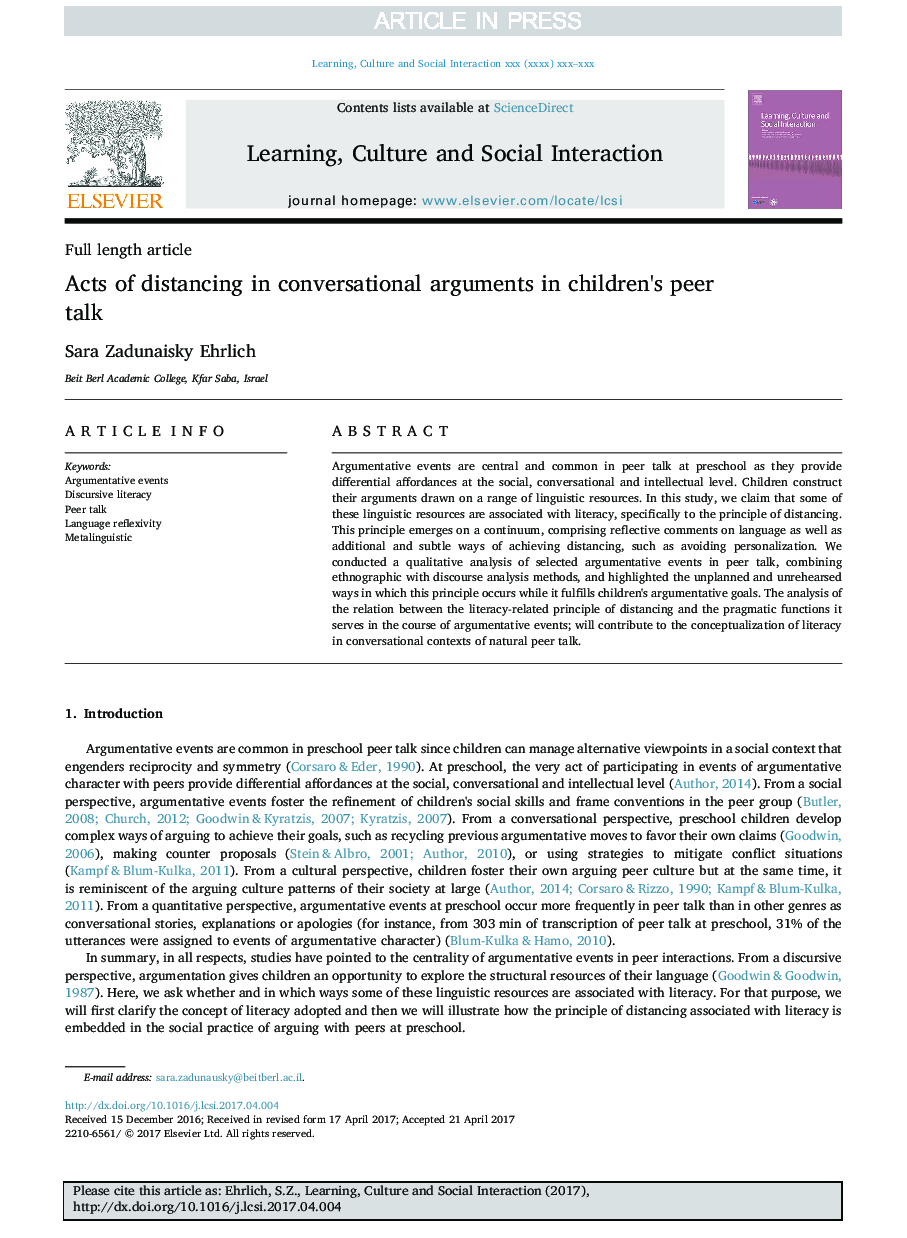| Article ID | Journal | Published Year | Pages | File Type |
|---|---|---|---|---|
| 4939882 | Learning, Culture and Social Interaction | 2017 | 12 Pages |
Abstract
Argumentative events are central and common in peer talk at preschool as they provide differential affordances at the social, conversational and intellectual level. Children construct their arguments drawn on a range of linguistic resources. In this study, we claim that some of these linguistic resources are associated with literacy, specifically to the principle of distancing. This principle emerges on a continuum, comprising reflective comments on language as well as additional and subtle ways of achieving distancing, such as avoiding personalization. We conducted a qualitative analysis of selected argumentative events in peer talk, combining ethnographic with discourse analysis methods, and highlighted the unplanned and unrehearsed ways in which this principle occurs while it fulfills children's argumentative goals. The analysis of the relation between the literacy-related principle of distancing and the pragmatic functions it serves in the course of argumentative events; will contribute to the conceptualization of literacy in conversational contexts of natural peer talk.
Keywords
Related Topics
Social Sciences and Humanities
Psychology
Developmental and Educational Psychology
Authors
Sara Zadunaisky Ehrlich,
